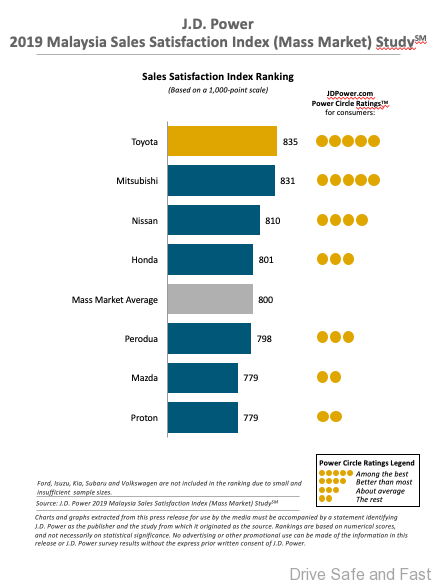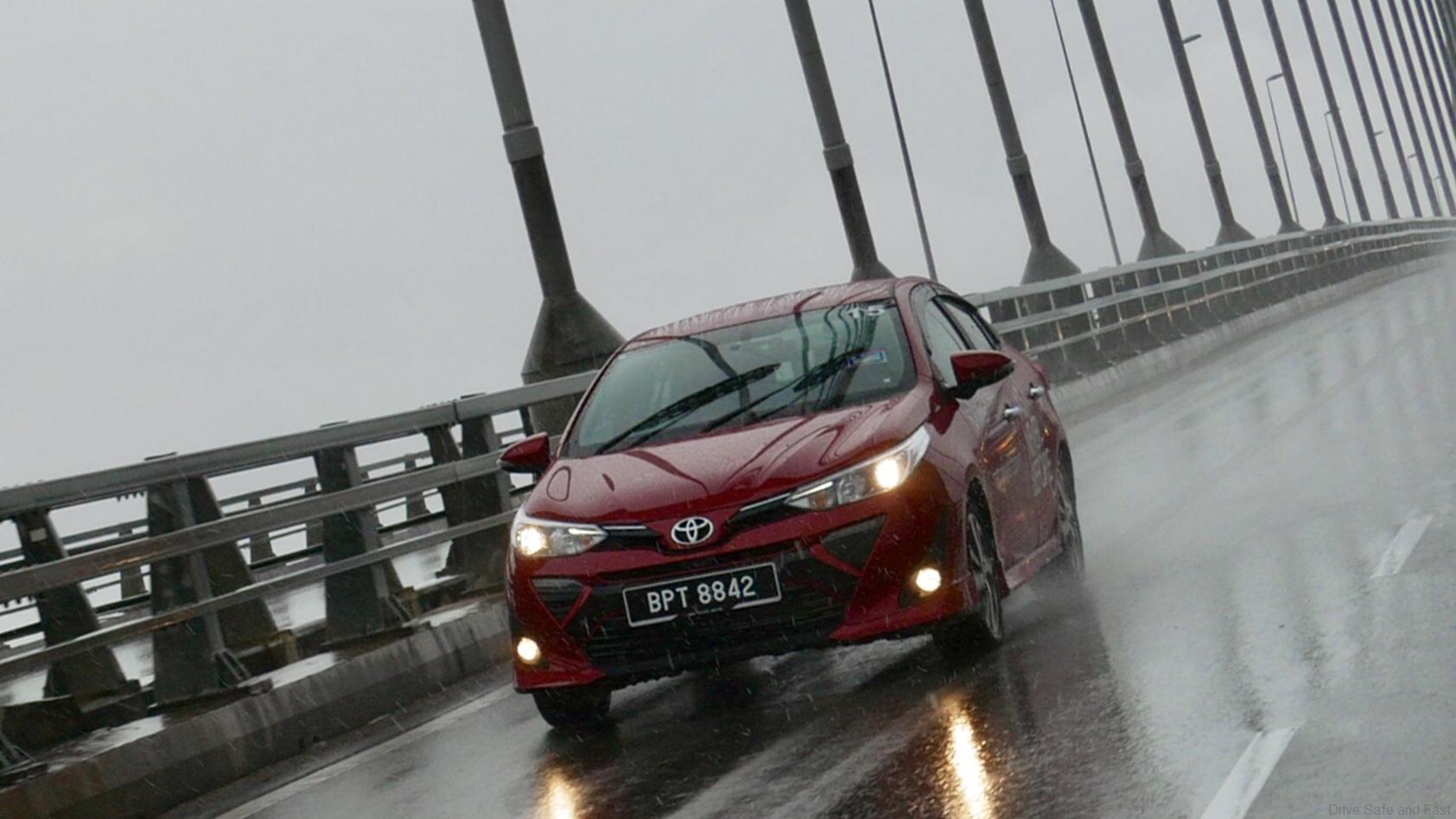The Japanese brands top this latest survey……again!
New-vehicle buyers in Malaysia are increasingly moving up the value ladder with more vehicle buyers showing interest in SUVs, according to the J.D. Power 2019 Malaysia Sales Satisfaction Index (Mass Market) StudySM, released this week.
Customers who purchased an SUV have higher satisfaction than small car buyers (806 vs. 794 points, on a 1,000-point scale). Overall sales satisfaction in the mass market segment is 800, an increase of 16 points from 2018.
In 2019, SUV buyers comprised 20% of new vehicle buyers as compared with a mere 6% in 2015. Across this five-year growth trajectory for SUVs, the proportion of small car and MPV/van buyers have both dropped (each by 5 percentage points). Even though the average transaction price of SUVs in 2019 is 2.6 times higher than small cars, buyers are showing a preference to purchase SUVs, citing vehicle styling, performance, technology and safety features. For small car buyers, good fuel efficiency and low monthly instalments cumulatively make up 48% of the main reasons for purchase.

“As lifestyles evolve and become more digitally connected, it is no surprise customers expect their choice of vehicle to be in sync with their needs and personal image,” said E-Ling Cheah, Country Manager for Malaysia at J.D. Power. “SUVs with their higher hip point provide a commanding seating position, which provides better visibility and perception of safety. Newly launched contemporary-style SUVs are also equipped with advanced connectivity and safety features. Furthermore, manufacturers have introduced more affordable SUVs, bringing them within reach of more buyers.”

The study also finds the proportion of replacement vehicle buyers is increasing (26% vs. 21% in 2018) and that of additional vehicle buyers decreasing (51% vs. 56% in 2018). On a related note, vehicle trade-ins—ever important to dealer profitability—are on the rise (21% vs. 17% in 2018). However, more customers are unhappy with the trade-in price received, stating it is below expectations (34% vs. 28% in 2018).
Following are additional key findings of the 2019 study:
- Customers who say they paid more than expected for their new vehicle have lower satisfaction than those who found the price to be in line with expectations (751 vs. 810, respectively).This underlines the need for clear communications to avoid unwelcome surprises during the sales journey.
- More dealership facilities are equipped with amenities to enhance customer comfort for a better sales experience. Improvements are seen in features ranging from displays of vehicle accessories (48% vs. 43% in 2018) to something as essential as comfortable seating space (84% vs. 77% in 2018).
- : While only 6% of buyers were told that a test drive vehicle was not available, this is essential for dealerships. Buyers who experience this scenario typically have a lower satisfaction (-94 points) than those who take test drives at the dealership of purchase.
Study Rankings
Toyota ranks highest in overall sales satisfaction with a score of 835. Mitsubishi (831) ranks second and Nissan (810) ranks third.
Now in its 17th year, the Malaysia Sales Satisfaction Index (Mass Market) Study examines six factors that contribute to overall customer satisfaction with their new vehicle purchase experience in the mass market segment. In order of impact on overall sales satisfaction, those factors are: dealer sales consultant (26%); dealership facility (21%); delivery process (20%); paperwork completion (17%); working out the deal (13%); and dealership website (4%).
The study is based on responses from 2,045 new vehicle owners who purchased their vehicle between July 2018 and July 2019, and was fielded from January through September 2019.

